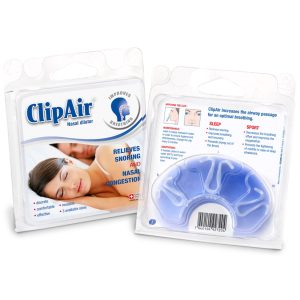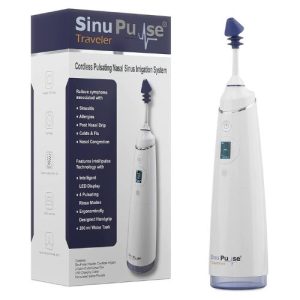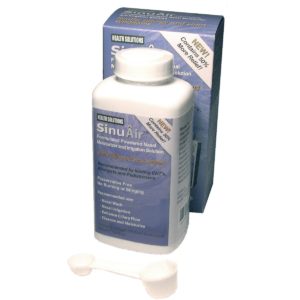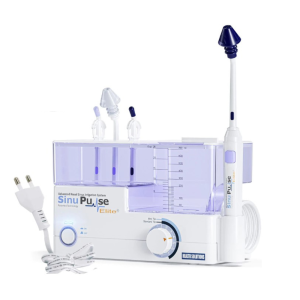Fact Checked
Intus Healthcare’s writers, customer service team, and sleep experts review and ensure this information is accurate.
Last updated on April 2nd, 2024 at 10:28 am
Obstructive Sleep Apnoea and a deviated septum are two medical conditions that can affect one another. Both conditions affect how a person breathes, causing discomfort and difficulty sleeping. Similarly, the conditions can develop due to a person’s anatomy, and this article will examine the relationship between having a deviated septum and Sleep Apnoea.
Table of Contents
Sleep Apnoea & a deviated septum
A deviated septum does not cause the sleep disorder, as the deviation does not cause an airway obstruction. Sleep apnoea is primarily caused by the obstruction or narrowing of the airway during sleep. However, a deviated septum can potentially obstruct the airflow and exacerbate sleep apnoea symptoms.

What is a deviated septum?
The nasal septum is the central wall (the bone and cartilage) that divides the nasal cavity into two sections, the left and right. The deviation occurs when the septum wall is crooked, making one nasal cavity smaller than the other.
Most people naturally have a slight deviation that does not cause discomfort or issues; only those with a severe deviation require treatment.
What causes a deviated septum?
A septum deviation can be caused by various reasons, including:
- Congenital Deviation: Some individuals are born with a deviated septum due to genetics or abnormal development of the nasal septum during foetal growth.
- Trauma: Physical injury to the nose, such as a broken nose from accidents or sports injuries, can cause a deviated septum.
- Ageing: As people age, the nasal septum can naturally change shape and become more crooked.
- Previous Nasal Surgery: Surgical procedures involving the nose, such as rhinoplasty or septoplasty, can lead to a deviated septum if not performed correctly or if complications arise during the healing process.
- Chronic Nasal Congestion: Conditions like chronic sinusitis, allergies, or other nasal obstructions can lead to inflammation and swelling of the nasal tissues, potentially causing the septum to become displaced over time.
- Nasal Polyps: The presence of nasal polyps, benign growths in the nasal passages, can push against the nasal septum and contribute to its deviation.
- Substance Abuse: Prolonged use of intranasal drugs, such as cocaine, can damage the nasal septum and result in deviation.
How do I know if I have a deviated septum?
Many people with a deviated septum don’t even know they have it, as they show no symptoms. However, if a deviation is causing problems, there are some symptoms to look out for; these include:
- Chronic congestion in one or both nostrils
- Snoring
- Nosebleeds
- Headaches or facial pain
- Reduced nasal airflow
- Difficulty breathing during sleep
- Sleeping on a particular side for ease of breathing
- Frequent sinus infections
- One larger nasal cavity
If you believe you could have the condition, speak with your doctor, who will likely need to examine your nose.
Treatment options for a deviated septum can range from nasal sprays and medications to surgery like septoplasty to correct the deviation and improve nasal airflow. We offer one of the best nasal irrigation systems available: the SinuPulse Elite. The device provides relief in minutes! Take a look at our sinus and nasal care products for more helpful treatment.
You could also take a look at our anti-snoring devices for more products designed to effectively stop snoring.

What is OSA?
Obstructive Sleep Apnoea (OSA) is one of the most common sleep conditions, affecting millions worldwide. OSA is characterised by pauses in breathing or shallow breaths during sleep. These breathing interruptions disrupt the normal sleep cycle, leading to frequent awakenings.
How do I know if I have Sleep Apnoea?
OSA is determined through a sleep study from your GP or privately. A sleep study records your sleep for a sleep clinician to analyse; you may require a sleep test if you are showing these symptoms:
If you are still deciding if you should take a sleep test, consider taking our quick, Free Sleep Apnoea Online Risk Test. It takes just 20 seconds to complete and lets you know if you could have OSA.
How does a deviated septum affect Sleep Apnoea?
Although a deviated septum will not cause OSA, it can increase symptoms. When an individual has a deviated septum, the uneven or crooked nasal septum can reduce airflow through one or both nostrils. This can result in several issues that exacerbate OSA:
- Increased Airway Resistance: The narrowed nasal passages create increased resistance to the flow of air, making it more challenging for individuals to breathe freely through their noses.
- Mouth Breathing: Due to nasal congestion or obstruction, individuals with deviated septums may be more likely to breathe through their mouths during sleep. Mouth breathing can further contribute to airway collapse and worsen OSA.
- Sleep Disturbances: The struggle to breathe correctly can lead to sleep disruptions, including frequent awakenings or shallower sleep, contributing to the overall severity of OSA.
- Increased Pressure on the Upper Airway: In some cases, nasal congestion from a deviated septum can create negative pressure in the upper airway, increasing the likelihood of the soft tissues in the throat collapsing during sleep and causing apnoea’s (brief cessations of breathing).
How does a deviated septum affect CPAP therapy?
CPAP therapy is the most commonly used treatment for OSA; it includes a machine, mask and tube. The device provides a continuous flow of pressurised air to prevent airway obstructions during sleep.
If you use a CPAP machine and suffer from a deviated septum, you should continue using your machine. However, you may find that certain types of CPAP masks are uncomfortable and ineffective for you.
Typically, nasal cushions and nasal pillows masks will not work for those with a deviated septum due to symptoms of congestion causing mouth breathing. A full-face mask supports the symptoms of nasal deviation as it covers both the nose and mouth, providing airflow to both.
Will fixing a deviated septum improve Sleep Apnoea?
Fixing a deviated septum through a surgical procedure known as septoplasty can potentially improve symptoms of Sleep Apnoea. However, it will not cure the sleep condition. This is because other factors contribute to the condition, like obesity or anatomical issues in the throat.
Septoplasty aims to straighten the nasal septum, allowing for better airflow through the nose. This improvement in nasal breathing can reduce the tendency to breathe through the mouth during sleep. By correcting the deviation, septoplasty decreases airway resistance, making it easier for air to flow freely. Nasal congestion from a deviated septum can create negative pressure in the upper airway, potentially causing it to collapse during inhalation. Septoplasty can alleviate this negative pressure, reducing the risk of airway collapse.
These factors allow CPAP users to use nasal masks rather than just full face masks. Fixing a deviation also improves comfort, making treatment more effective.
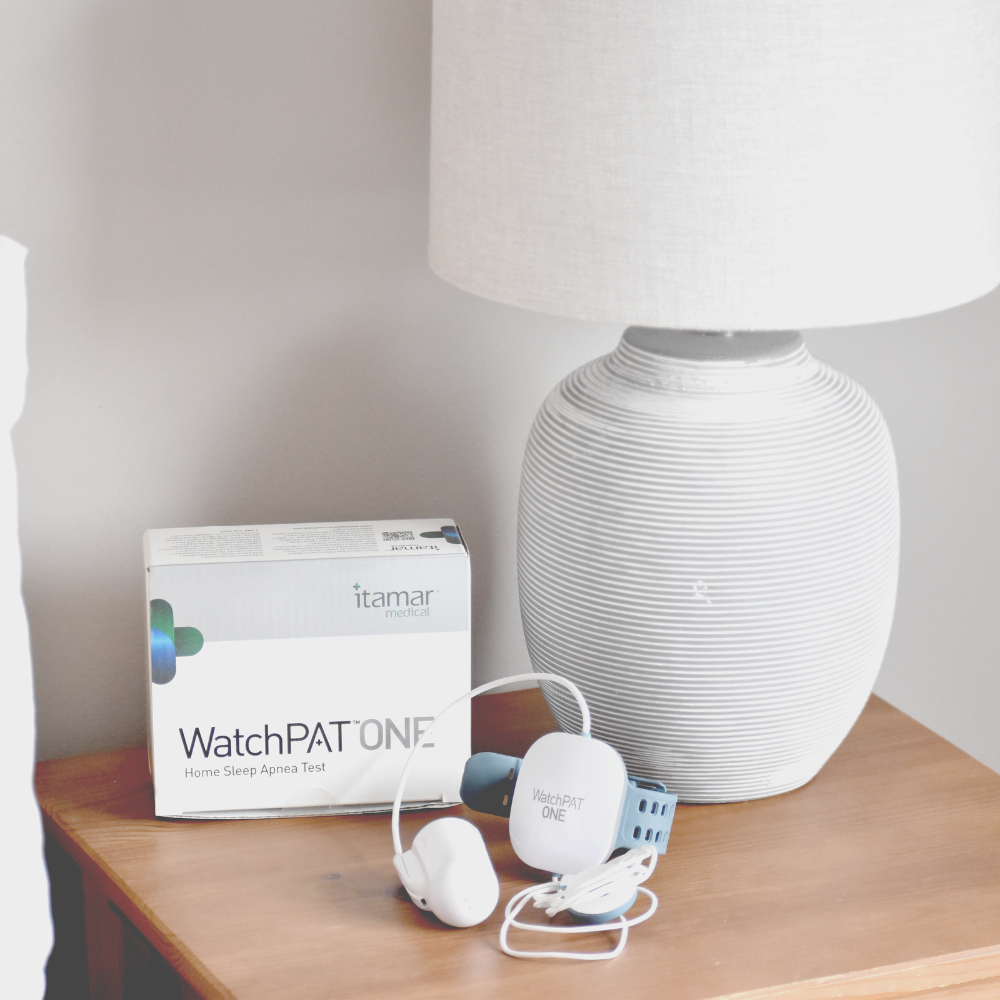
Sleep Apnoea Test
A quick and easy way to confirm if you do or do not have Sleep Apnoea is by taking a sleep test.
The Sleep Apnoea test requires one night of sleep data, and the results are sent to you within two working days. Taking the test puts you closer to understanding if you have overlap syndrome.
Need some support?
Contact us if you require any CPAP therapy advice.




